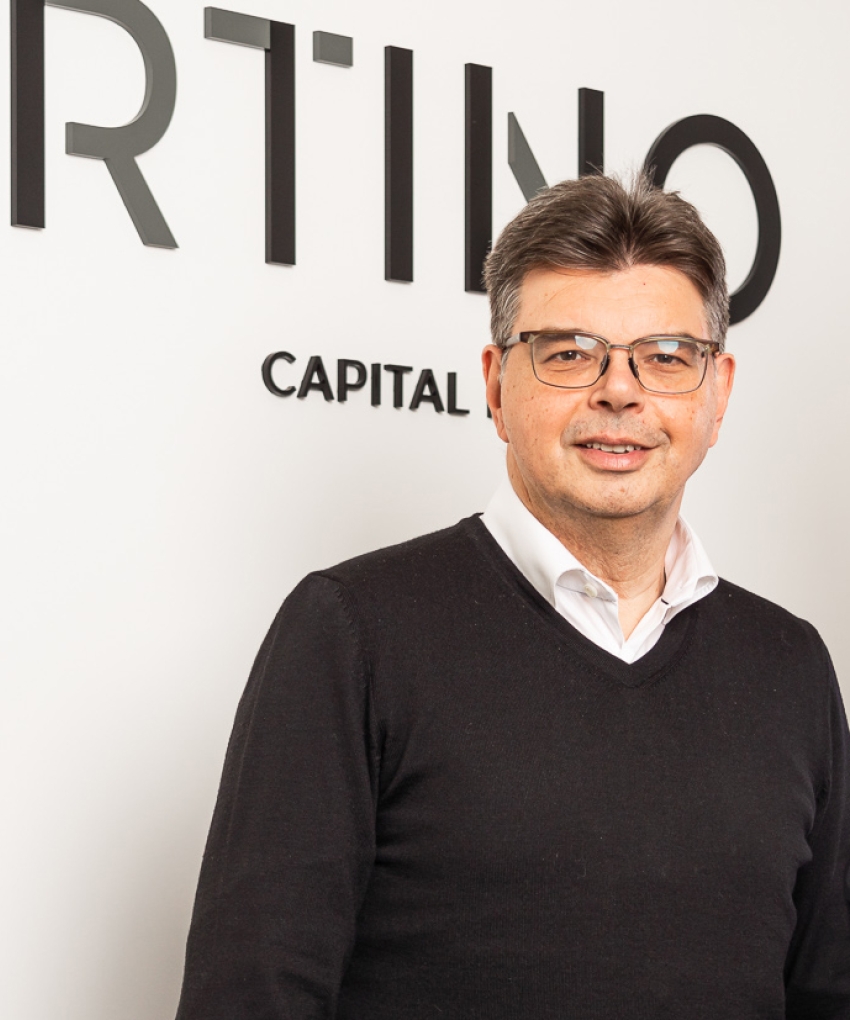8 tips for VC fundraising in an uncertain market environment
8 tips for VC fundraising in an uncertain market environment
The entrepreneurial and investment world is changing drastically. In 2023, it will be harder than before to raise money. Start-ups and scale-ups must create and seize opportunities more actively as a result. How do you organize successful fundraising in Venture Capital?
"Fundraising is like sales," says Joyce Mackenzie Liu, a Modern CFO, Founder and CEO of Pegafund. Pegafund was started three years ago to provide fractional CFO services and leadership upskilling to high growth SaaS businesses. Their goal? To enhance the skills and expertise to scale quickly and effectively from Series A to C (and beyond). In her workshop during the Fortino CFO summit, she shares best practices in fundraising at VCs ... in these challenging times.
Because despite the tough market, investors always have money for great stories. How do you dish them a once-in-a-lifetime opportunity?
Borrow successful sales methodologies
According to Joyce, take an enterprise sales approach to preparing for funding rounds. She finds the sales funnel, sales pipeline, and the MEDDPICC methodology to be powerful frameworks to a successful fundraise. Because the investor pipeline helps you through the different steps to a successful fundraising, just as prospects become customers in a sales process. The MEDDPICC framework is an ideal investor qualification methodology.
Treat investment funds as businesses
"It is sometimes forgotten that investment funds are also businesses, with many stakeholders and varying ways of making decisions. The better you know their strategy and focus, and build the right relationships, the more easily you will raise money." Joyce divides the information you need to gather about investment funds into four categories: the fund size, fund strategy, experience and competition. "When you cross all the possibilities, you end up with almost a thousand different inputs into the strategy of an investment fund. You can't possibly approach them in an equal way."

At the same time, consider the scarcest thing in the life of an entrepreneur and CFO: time. You can do meetings with hundreds of investors, spend a lot of time, and still fail at raising that next round.
What do you do? Select the investment funds that fit your vision, company strategy, culture, and product offering. Know that you are looking for a marriage partner of sorts for ten years. Be careful! Exclude funds that are already investing in a direct competitor.
Work out strategy and planning
One of the most important tasks of CFOs is to bring structure to the chaos and continuous change in high growth environments, so they can scale faster. Joyce's advice to CFOs? "Plan and work out a clear strategy. Failing to plan is planning to fail. Planning is anticipating all versions of the future, including different growth strategies. Second, in the strategy you focus more on aligning on near and medium term focus with the investment fund. You combine these with long-term market vision and business opportunity. Third, you work on forecasting revenue, costs, and cash flow as well as key metrics that inform your product-market fit and go-to market strategy."
What metrics are decisive today? You'll find out in Joyce's article: 5 SaaS efficiency metrics to measure in a bear market.
Bring in the best people
But VCs need more than reporting. People are crucial. A VC also values companies based on the founders and employees. Then the power to recruit great, more experienced people is important.
Invest in people, is the advice. But that is precisely what goes wrong, according to Joyce. Although she also sees opportunities today: "The biggest problem today to scale? The shortage of talent well-rounded in data and financial literacy, technical competency, commercial acumen, and soft skills. You need a balance of specialist and generalist skills to effect real change, fast. Companies need specialized profiles in sales, marketing, product, engineering and finance and operations. But these are not widely available on the SaaS labor market. Perhaps profiles are becoming available due to the large rounds of layoffs at the big tech companies. They have over-recruited in recent years and are now downsizing."
Make yourself scalable
At the same time, as a founder-CEO, Finance leader or first employee yourself, the challenge is to evolve with the company. Are you scaling yourself? "You often see that former leaders are often replaced after Series B and C investment rounds. While it is valuable to keep the initial leaders on board, it mostly depends on the leaders themselves. Have they scaled themselves ahead of where the business needs them to be?" Joyce recommends a mix of old and new people. This keeps a balanced DNA of entrepreneurial spirit and business performance.
Collaborate with colleagues
You don't have to do the whole process alone. Strengthen yourself through collaboration, tips Joyce: "In Europe, I unfortunately observe that companies and founder-CEOs share little and infrequently, even though they struggle with the same challenges. Sharing experiences can make anyone grow. In the West Coast of the US, it is open competition and collaboration. They share experiences there like you play poker with all the cards facing up on the table. Whoever has the best cards wins. Here in Europe, the hands are usually closed. More collaboration is needed."
Bring in external expertise
You can also bring in expertise through experts. Get assistance in preparing for a capital round, as the investment landscape has become quite complex. An independent view of your company and figures helps with preparation.
Thorough preparation allows you to fund your business quickly and efficiently. Especially today, keep the period of time that you are on the market best as short as possible. "We as investors have time on our side," points out Renaat Berckmoes, partner at Fortino Capital. "Every month we wait informs us about whether you are living up to the growth plans. But in the current climate, you cannot be sure that growth will continue. With thorough preparation of at least 6 months, you can hook an investor at the most favorable time."

Read the article Connections matter more than capital.
Keep reports up-to-date
Did you just do a successful fundraising? Then pop the champagne ... and just start over. Because you need to maintain a strong relationship with your investors and get ready for the next round of capital.
The message? Keep your financials and metrics up-to-date, sharpen your story, make sure your numbers support the story, and involve the best employees and experts.